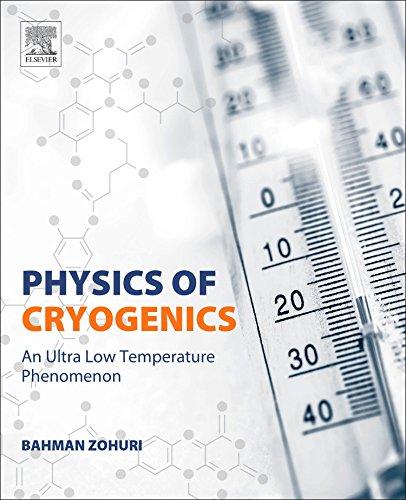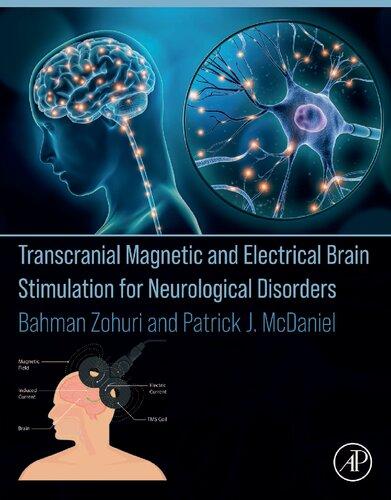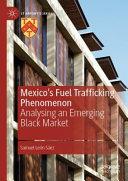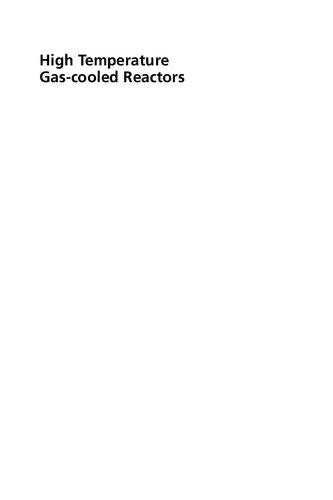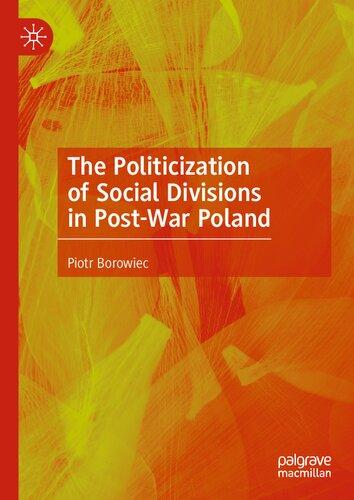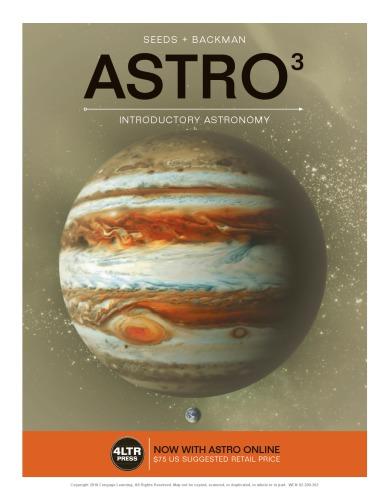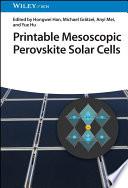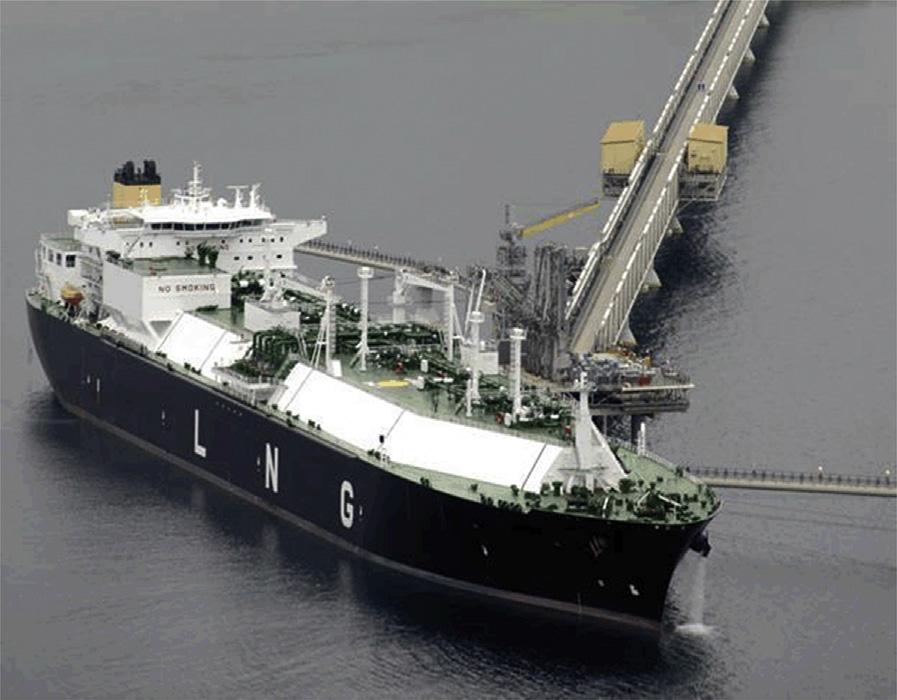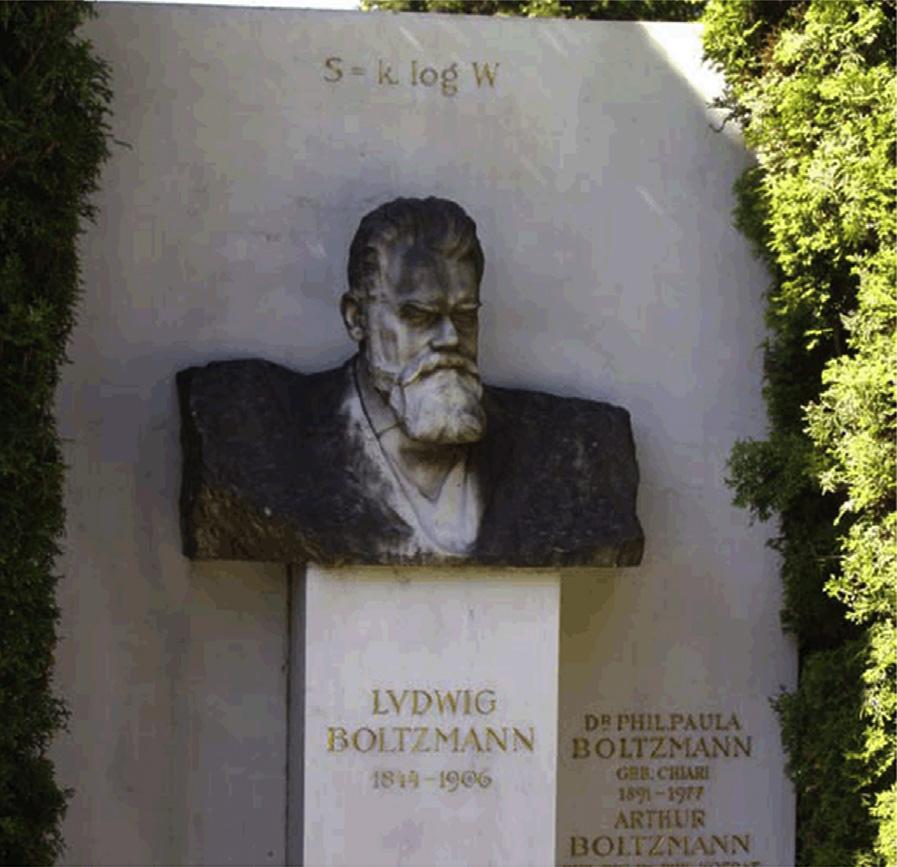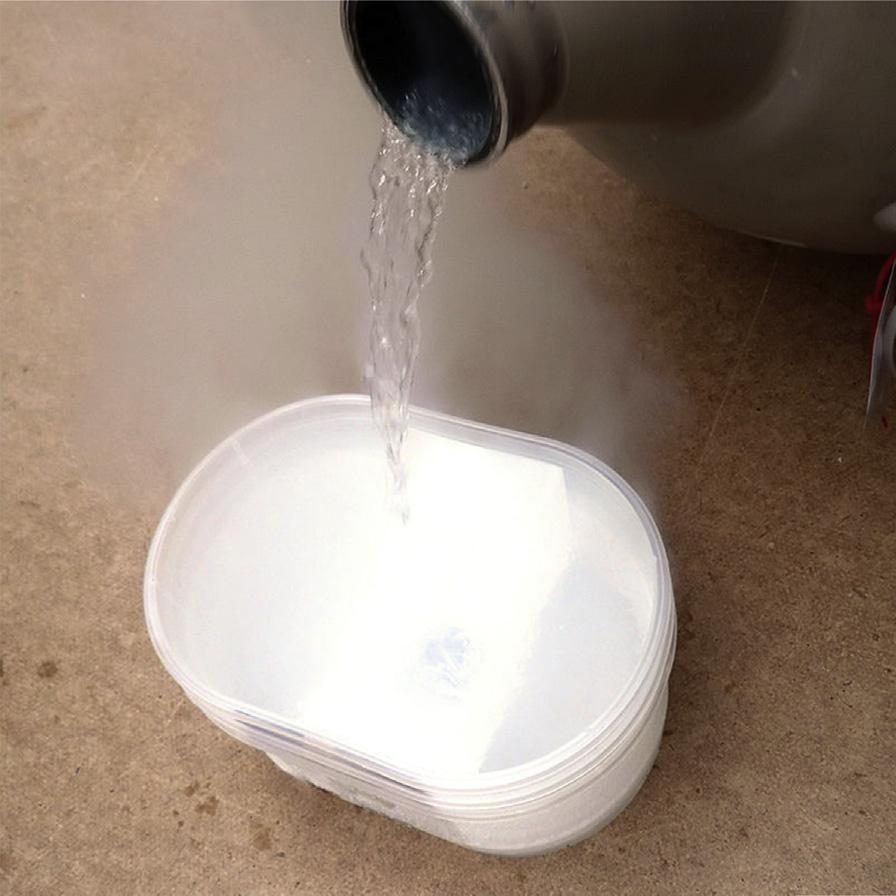https://ebookmass.com/product/physics-of-cryogenics-anultralow-temperature-phenomenon-bahman-zohuri/
Instant digital products (PDF, ePub, MOBI) ready for you
Download now and discover formats that fit your needs...
Transcranial Magnetic and Electrical Brain Stimulation for Neurological Disorders 1st Edition Bahman Zohuri
https://ebookmass.com/product/transcranial-magnetic-and-electricalbrain-stimulation-for-neurological-disorders-1st-edition-bahmanzohuri/ ebookmass.com
Mexico's Fuel Trafficking Phenomenon: Analysing an Emerging Black Market 1st ed. 2021 Edition León Sáez
https://ebookmass.com/product/mexicos-fuel-trafficking-phenomenonanalysing-an-emerging-black-market-1st-ed-2021-edition-leon-saez/
ebookmass.com
High Temperature Gas-cooled Reactors Takeda
https://ebookmass.com/product/high-temperature-gas-cooled-reactorstakeda/ ebookmass.com
A New Dawn for Politics 1st Edition Alain Badiou
https://ebookmass.com/product/a-new-dawn-for-politics-1st-editionalain-badiou/
ebookmass.com
The Politicization of Social Divisions in Post-War Poland Piotr Borowiec
https://ebookmass.com/product/the-politicization-of-social-divisionsin-post-war-poland-piotr-borowiec/
ebookmass.com
Matemáticas III Ron Larson
https://ebookmass.com/product/matematicas-iii-ron-larson/
ebookmass.com
Essential guide to marketing planning 4th Revised edition Edition Wood
https://ebookmass.com/product/essential-guide-to-marketingplanning-4th-revised-edition-edition-wood/
ebookmass.com
ASTRO 3: Introductory Astronomy 3rd Edition Michael A. Seeds
https://ebookmass.com/product/astro-3-introductory-astronomy-3rdedition-michael-a-seeds-2/
ebookmass.com
Psychotherapy, Literature and the Visual and Performing Arts 1st ed. Edition Bruce Kirkcaldy
https://ebookmass.com/product/psychotherapy-literature-and-the-visualand-performing-arts-1st-ed-edition-bruce-kirkcaldy/
ebookmass.com
Printable Mesoscopic Perovskite Solar Cells 1st Edition
Hongwei Han
https://ebookmass.com/product/printable-mesoscopic-perovskite-solarcells-1st-edition-hongwei-han/
ebookmass.com
Elsevier
Radarweg29,POBox211,1000AEAmsterdam,Netherlands TheBoulevard,LangfordLane,Kidlington,OxfordOX51GB,UnitedKingdom 50HampshireStreet,5thFloor,Cambridge,MA02139,UnitedStates
Copyright © 2018ElsevierInc.Allrightsreserved.
Nopartofthispublicationmaybereproducedortransmittedinanyformorbyanymeans, electronicormechanical,includingphotocopying,recording,oranyinformationstorageandretrieval system,withoutpermissioninwritingfromthepublisher.Detailsonhowtoseekpermission,further informationaboutthePublisher’spermissionspoliciesandourarrangementswithorganizations suchastheCopyrightClearanceCenterandtheCopyrightLicensingAgency,canbefoundatour website: www.elsevier.com/permissions .
Thisbookandtheindividualcontributionscontainedinitareprotectedundercopyrightbythe Publisher(otherthanasmaybenotedherein).
Notices
Knowledgeandbestpracticeinthis fieldareconstantlychanging.Asnewresearchandexperience broadenourunderstanding,changesinresearchmethods,professionalpractices,ormedical treatmentmaybecomenecessary.
Practitionersandresearchersmustalwaysrelyontheirownexperienceandknowledgeinevaluating andusinganyinformation,methods,compounds,orexperimentsdescribedherein.Inusingsuch informationormethodstheyshouldbemindfuloftheirownsafetyandthesafetyofothers, includingpartiesforwhomtheyhaveaprofessionalresponsibility.
Tothefullestextentofthelaw,neitherthePublishernortheauthors,contributors,oreditors, assumeanyliabilityforanyinjuryand/ordamagetopersonsorpropertyasamatterofproducts liability,negligenceorotherwise,orfromanyuseoroperationofanymethods,products, instructions,orideascontainedinthematerialherein.
LibraryofCongressCataloging-in-PublicationData
AcatalogrecordforthisbookisavailablefromtheLibraryofCongress
BritishLibraryCataloguing-in-PublicationData
AcataloguerecordforthisbookisavailablefromtheBritishLibrary
ISBN:978-0-12-814519-7
ForinformationonallElsevierpublicationsvisitour websiteat https://www.elsevier.com/books-and-journals
Publisher: JohnFedor
AcquisitionEditor: AnitaKoch
EditorialProjectManager: KaterinaZaliva
ProductionProjectManager: NileshKumarShah
CoverDesigner: GregHarris
TypesetbyTNQBooksandJournals
ThisbookisdedicatedtomysonSasha.
AbouttheAuthor
Dr.BahmanZohuricurrentlyworksfor GalaxyAdvancedEngineering,Inc.,a consulting fi rmthathestartedin1991when heleftboththesemiconductoranddefense industriesaftermanyyearsworkingasa chiefscientist.Aftergraduatingfromthe UniversityofIllinoisinthe fi eldofphysics, appliedmathematics,hewenttotheUniversityofNewMexico,wherehestudied nuclearengineeringandmechanicalengineering.HejoinedWestinghouseElectric Corporation,whereheperformedthermal hydraulicanalysisandstudiednaturalcirculationinaninherentshutdown,heat removalsystem(ISHRS)inthecoreofa liquidmetalfastbreederreactor(LMFBR)as asecondaryfullyinherentshutdownsystem forsecondaryloopheatexchange.Allthese designswereusedinnuclearsafetyand reliabilityengineeringforaself-actuated shutdownsystem.Hedesignedamercury heatpipeandelectro magneticpumpsfor largepoolconceptsofanLMFBRforheat rejectionpurposesforthisreactoraround 1978,whenhereceivedapatentforit.He wassubsequentlytransferredtothedefense divisionofWestinghouse,whereheoversawdynamicanalysisandmethodsof launchingandcontrollingMXmissilesfrom canisters.TheresultswereappliedtoMX launchsealperformanceandmuzzleblast phenomenaanalysis(i.e.,missilevibration andhydrodynamicshockformation).Dr. Zohuriwasalsoinvolvedinanalyticalcalculationsandcomputationsinthestudyof nonlinearionwavesinrarefyingplasma. Theresultswereappliedtothepropagation ofso-calledsolitonwavesandtheresulting
chargecollectortracesintherarefaction characterizationofthecoronaoflaserirradiatedtargetpellets.Aspartofhis graduateresearchworkatArgonneNational Laboratory,heperformedcomputationsand programmingofmultiexchangeintegralsin surfacephysicsandsolid-statephysics.He earnedvariouspatentsinareassuchas diffusionprocessesanddiffusionfurnace designwhileworkingasaseniorprocess engineeratvarioussemiconductorcompanies,suchasIntelCorp.,VarianMedical Systems,andNationalSemiconductorCorporation.HelaterjoinedLockheedMartin MissileandAerospaceCorporationasSenior ChiefScientistandoversawresearchand development(R&D)andthestudyofthe vulnerability,survivability,andbothradiationandlaserhardeningofdifferentcomponentsoftheStrategicDefenseInitiative, knownasStarWars.
Thisincludedpayloads(i.e.,IRsensor) fortheDefenseSupportProgram,theBoost SurveillanceandTrackingSystem,and SpaceSurveillanceandTrackingSatellite againstlaserandnuclearthreats.Whileat LockheedMartin,healsoperformedanalysesoflaserbeamcharacteristicsandnuclearradiationinteractionswithmaterials, transientradiationeffectsinelectronics, electromagneticpulses,system-generated electromagneticpulses,single-eventupset, blast,thermomechanical,hardnessassurance,maintenance,anddevicetechnology.
Hespentseveralyearsasaconsultantat GalaxyAdvancedEngineeringservingSandia NationalLaboratories,wherehesupported thedevelopmentofoperationalhazard
assessmentsfortheAirForceSafetyCenterin collaborationwithotherresearchersandthird parties.Ultimately,theresultswereincluded inAirForceInstructionsissuedspecificallyfor directedenergyweaponsoperationalsafety. Hecompletedthe firstversionofacomprehensivelibraryofdetailedlasertoolsfor airbornelasers,advancedtacticallasers, tacticalhigh-energylasers,andmobile/ tacticalhigh-energylasers,forexample.
HealsooversawSDIcomputerprograms,in connectionwithBattleManagementC3I andartificialintelligence,andautonomous systems.Heistheauthorofseveralpublicationsandholdsseveralpatents,suchasfora laser-activatedradioactivedecayandresultsof athrough-bulkheadinitiator.Hehaspublished
thefollowingworks: HeatPipeDesignand Technology:APracticalApproach (CRCPress); DimensionalAnalysisandSelf-SimilarityMethods forEngineeringandScientists (Springer); High EnergyLaser(HEL):Tomorrow’sWeaponin DirectedEnergyWeaponsVolumeI (Trafford PublishingCompany);andrecentlythebook onthesubject DirectedEnergyWeaponsand PhysicsofHighEnergyLaser withSpringer.He haspublishedotherbookswithSpringerPublishingCompanyandCRCinvarioussubjects relatedto: ThermodynamicsinNuclearPower PlantSystems (Springer);and Thermal-Hydraulic AnalysisofNuclearReactors (Springer),heatpipe technology,artificialintelligence,andsoon.He alsohasmorethan60softwarecopyrightsand patents.
CryogenicTechnologies
OUTLINE
1.1Introduction2
1.2LowTemperatureinScienceand Technology4
1.3Defi ningCryogenicFluidsor Liquids8
1.3.1TypeofCryogenicLiquids10
1.3.2ThermophysicalProperties13
1.3.3LiquidBoil-Off13
1.3.4CryogenUseforEquipment Cool-Down14
1.3.5PhaseDomains15
1.3.6PersonalProtectiveEquipment toBeWorn15
1.3.7HandlingCryogenicLiquids16
1.3.8StoringCryogenicLiquids16
1.3.9HazardsofCryogenicLiquids17
1.3.10GeneralHazardsofCryogenic Liquids17
1.4HeatTransferandThermalDesign18
1.4.1SolidConduction18
1.4.2Radiation19
1.4.3Convection21
1.4.4GasConduction22
1.4.5MultilayerInsulation22
1.4.6VaporCoolingofNecksand Supports23
1.5RefrigerationandLiquefaction25
1.5.1Thermodynamicsof Refrigeration25
1.5.2HeliumRefrigeratorsversus Lique fiers26
1.5.3RealCyclesandRefrigeration Equipment28
1.6IndustrialApplications33
1.6.1CryogenicProcessingforAlloy Hardening33
1.6.2CryogenicFuels34
1.6.3CryogenicApplicationin NuclearMagneticResonance Spectroscopy34
1.6.4CryogenicApplicationin MagneticResonanceImage35
1.6.5CryogenicApplicationin ElectricPowerTransmission WithinBigCities35
1.6.6CryogenicApplicationin FrozenFoodTransport36
1.6.7CryogenicApplicationin ForwardLookingInfrared37
1.6.8CryogenicApplicationin Space38
1.6.9CryogenicinBloodBanking, Medicine,andSurgery39
1.6.10CryogenicinManufacturing Process42
1.6.11CryogenicinRecyclingof Materials43
1.6.12CryogenicEnergyStorage43
1.6.12.1CESCharacteristics44
1.6.13CESinNuclearPowerPlants45
1.6.14CryogenicApplicationin Research47
1.7CryogenicFluidManagement47
1.7.1Benefits47
1.7.2ResearchOverview47
1.7.3Right:Lightweight, High-EfficientCryocooler48
1.7.4Background49
1.7.5Right:Lique fierDemoand CryogenicInsulationTest Facility49
1.8Conclusion50 References50 FurtherReading51
Cryogenicsisthesciencethataddressestheproductionandeffectsofverylowtemperatures.ThewordoriginatesfromtheGreekwords kryos meaning “frost” and genic meaning “toproduce.” Undersuchadefinition,itcouldbeusedtoincludealltemperaturesbelow thefreezingpointofwater(0 C).However,Prof.KamerlinghOnnesoftheUniversityofLeidenintheNetherlands firstusedthewordin1894todescribetheartandscienceofproducingmuchlowertemperatures.Heusedthewordinreferencetotheliquefactionofpermanent gasessuchasoxygen,nitrogen,hydrogen,andhelium.Oxygenhadbeenliquefiedat 183 C afewyearsearlierin1887,andaracewasinprogresstoliquefytheremainingpermanent gasesatevenlowertemperatures.Thetechniquesusedinproducingsuchlowtemperatures werequitedifferentfromthoseusedsomewhatearlierintheproductionofartificialice.In particular,ef ficientheatexchangersarerequiredtoreachverylowtemperatures.Overthe years,theterm “cryogenics” hasgenerallybeenusedtorefertotemperaturesbelow approximately 150 C(123.15K, 238.00 F).
1.1INTRODUCTION
Accordingtothelawsofthermodynamics,thereexistsalimittothelowesttemperature thatcanbeachieved,whichisknownasabsolutezero.Moleculesareintheirlowest,but finite, energystateatabsolutezero.Suchatemperatureisimpossibletoreachbecausetheinputpowerrequiredapproachesinfinity.However,temperatureswithinafewbillionthsofadegree aboveabsolutezerohavebeenachieved.Absolutezeroisthezerooftheabsoluteorthermodynamictemperaturescale.Itisequalto 273.15 Cor 459.67F.ThemetricorSI(InternationalSystem)absolutescaleisknownastheKelvinscale,whoseunitisthekelvin(not Kelvin),whichhasthesamemagnitudeasthedegreeCelsius.ThesymbolfortheKelvinscale isK,asadoptedbythe13thGeneralCouncilonWeightsandMeasures(CGPM)in1968.Thus, 0 Cequals273.15K.TheEnglishabsolutescale,knownastheRankinescale,usesthesymbolR andhasanincrementthesameasthatoftheFahrenheitscale.IntermsoftheKelvinscale,the cryogenicregionisoftenconsideredtobethatbelowapproximately120K( 153 C).Thecommonpermanentgasesreferredtoearlierchangefromgastoliquidatatmosphericpressureat thetemperaturesshownin Table1.1,calledthenormalboilingpoint(NBP).Inthistable,we
was firstdiscoveredin1911byKamerlinghOnnes,butsince1986,anotherclassofmaterials, knownashightemperaturesuperconductors,hasbeenfoundtobesuperconductingatmuch highertemperatures,currentlyuptoabout145K.Theyareatypeofceramic,andbecauseof theirbrittlenature,theyaremoredifficulttofabricateintowiresformagnets.
Otherapplicationsofcryogenicsincludefastfreezingofsomefoodsandthepreservation ofsomebiologicalmaterialssuchaslivestocksemenaswellashumanblood,tissue,andembryos.Thepracticeoffreezinganentirehumanbodyafterdeathinthehopeoflaterrestoring lifeisknownascryonics,butitisnotanacceptedscienti ficapplicationofcryogenics.The freezingofportionsofthebodytodestroyunwantedormalfunctioningtissueisknownas cryosurgery.Itisusedtotreatcancersandabnormalitiesoftheskin,cervix,uterus,prostate gland,andliver.
1.2LOWTEMPERATUREINSCIENCEANDTECHNOLOGY
Cryogenicsasitwasdescribedinprevioussectionisdefinedas thatbranchofphysics,which dealswiththeproductionofverylowtemperaturesandtheireffectonmatter, 1 aformulationthat addressesbothaspectsofattaininglowtemperaturesthatdonotnaturallyoccuronEarth andofusingthemforthestudyofnatureorthehumanindustry.Inamoreoperational way, 2 itisalsodefinedas thescienceandtechnologyoftemperaturesbelow 120K.Thereason forthislatterdefinitioncanbeunderstoodbyexaminingcharacteristictemperaturesofcryogenic fluidsasshownin Table1.1
Thelimittemperatureof120KcomprehensivelyincludestheNBPsofthemainatmosphericgases,aswellasofmethane,whichconstitutestheprincipalcomponentofnatural gas.Today,liquidnaturalgas(LNG)representsoneofthelargest andfast-growing industrialdomainsofapplicationofcryogenics(see Fig.1.1),togetherwiththeliquefaction andseparationofairgases(see Fig.1.2).Thedensificationbycondensationandseparation bydistillationofgaseswashistorically andremainstoday-themaindrivingforcefor thecryogenicindustry.Thisisexemplifiednotonlybyliquidoxygen,andbynitrogen
FIGURE1.1 A130,000m3 liquidnaturalgascarrierwithintegratedinvartank.
configurations.Boltzmannalsofoundthattheaveragethermalenergyofaparticleina systeminequilibriumattemperature T is
Consequently,atemperatureof1Kisequivalenttoathermalenergyof10 4 eVor10 23 J perparticle.
Atemperatureisthereforelowforagivenphysicalprocesswhen kB T issmallcomparedto thecharacteristicenergyoftheprocessthatisconsidered.
Cryogenictemperaturesthusrevealphenomenawithlowcharacteristicenergy(Table1.2) andenabletheirapplicationwhensignificantlylowerthanthecharacteristicenergyofthe
TABLE1.2 CharacteristicTemperatureofLow-Energy Phenomena
PhenomenonTemperature(K)
DebyetemperatureofmetalsFew100
High-temperaturesuperconductors w100
Low-temperaturesuperconductors w10
Intrinsictransportpropertiesofmetals <10
CryopumpingFew
Cosmicmicrowavebackground2.7
Super fluidhelium42.2
Bolometersforcosmicradiation <1
LowdensityatomicBose-Einsteincondensates w10 6
FIGURE1.5 LvdwigBoltzmann’sgraveintheZentralfriedhofVienna,bearingtheentropyformula.
Vaporpressureofcommongasesatcryogenictemperature.
withcryogenicliquidsmustbeawareoftheirhazardsandknowhowtoworksafelywith them. Fig.1.8 isapresentationofliquidnitrogen(LN).
Thediscoveryofsuperconductingmaterialswithcriticaltemperaturessignificantlyabove theboilingpointofliquidnitrogenhasprovidednewinterestinreliable,low-costmethodsof
FIGURE1.7
FIGURE1.8 Liquidnitrogen.
TABLE1.3 SomePropertiesofCryogensatTheirNormalBoilingPoints
Normalboiling point(K)
4.2220.423.727.177.381.785.087.390.2111.6120.0165.0169.4
Liquiddensity(kg/m3)12571.0163120580979215021393114142324003040568
Liquiddensity/vapor density
Enthalpyofvaporization (kJ/kg)
Enthalpyofvaporization (kJ/kg-mol)
7.45371126175181267241255236270297272
20.424463018619921617516121351210896482
80.689912112333556560406659644167988206904212.60413.534
Volumeofliquid vaporizedbyenergyinput of1W-hr(cm3) 14101147433222114161517141313
Dynamicviscosityof liquid(mNsec/m2)
3.313.328.3124152 240260195119404506170
Surfacetension(mN/m)0.101.9 w34.88.99.614.812.513.213.25.518.316.5
Thermalconductivityof liquid(mW/mK) 18.7100 w100113135 1281521879474192
Volumeofgasat15 C releasedfrom1volumeof liquid
Pressureof1.01,323bar.
7398308301412681806905824842613689520475
HandsBA,editor. CryogenicEngineering:AcademicPress;1996.
oxidizerseveninliquidform.Somecryogensare flammable;hydrogenisespeciallydelicate tohandle.
Hydrogenisanunusual fluidinthatthemoleculeexistsintwoformsknownas ortho and para,withsomewhatdifferentproperties.Theratioof ortho to para isdeterminedbyconventionalthermodynamicsandisdependentontemperature.Therearealsodifferentformsof isotopes(deuteriumandtritium)andthesetwoisotopesareusedindrivingfusionenergy productionviaeithermagneticconfinementfusion7 orinertialconfinementfusion.7
Anexplanationofthebehaviorofthehydrogenmoleculerequiresknowledgeofquantum mechanicsandwillnotbediscussedhere.Atlowtemperatures,equilibriumhydrogen(e-H2) isentirely para. Atroomtemperature,the ortho:para ratiois3.Theequilibriumstateatroom temperatureisoftenknownasnormalhydrogenorn-hydrogen.Thetransitionfromtheortho totheparastateinvolvesaheatofconversion whichcanbegreaterthantheenthalpyof vaporization sothatthevaporizationratesofhydrogenareoftenmuchlargerthanexpected.Itisforthisreasonthatacatalystisoftenincludedinahydrogenliquefiertoensure thatonly para hydrogenispresentintheliquid.8
Heliumisthecryogenic fluidthatcanbeclaimedtobeunique.Becauseofitslowmolecularweightandchemicalinertness,quantummechanicaleffectsareimportant.Therearetwo isotopicforms:thenaturalformHe4,whichhasanucleusconsistingoftwoprotonsandtwo
TABLE1.5 VaporizationofLiquidHeliumandLiquidNitrogenat NormalBoilingPointUnder1WAppliedHeatLoad
Cryogen(mg/s)(1/hLiquid)(1/minGasNTP)
Helium481.3816.4 Nitrogen50.020.24
escapingthecryostat,whichcanbewarmeduptoroomtemperatureandmeasuredina conventionalgas flowmeter.Ondecreasingtheliquidlevel,though,partofthevaporwill takethevolumeinthecryostatpreviouslyoccupiedbytheliquid,whichhasvaporized, andtheescaping flowwillbelowerthantheboil-off.Moreprecisely,iftheboil-offvapor istakenatsaturationinequilibriumwiththeliquid
Theescapinggas flowmeasuredmust,therefore,becorrectedupwardtoobtainthetrue boil-off.Fromvaluesofsaturatedliquidtovapordensityratiosin Table1.4,thiscorrection factorisonly1.006fornitrogenandcanthereforebeneglected.Forhelium,though,it amountsto1.16andmustclearlybetakenintoaccount.
1.3.4CryogenUseforEquipmentCool-Down
Forboth fluids,thesensibleheatofthevaporoverthetemperaturerangefromliquidsaturationtoambientiscomparabletoorlargerthanthelatentheatofvaporization.Thisprovidesavaluablecoolingpotentialatintermediatetemperature,whichcanbeusedfor thermalshieldingorforprecoolingofequipmentfromroomtemperature.Theheatbalance equationforcoolingamassof,say,iron mFe ofspeci ficheat CFe ðT Þ attemperature T byvaporizingamass dm ofcryogenicliquidatsaturationtemperature Tv ,latentheatofvaporization Lv andvaporspeci ficheat C takenasconstant,isassumingperfectheatexchangewiththe liquidandthevapor.
Hence,thespeci ficliquidcryogenrequirementforcool-downfromtemperature T0 :
Theterm CðT Tv Þ addingto Lv inthedenominatorbringsastrongattenuationtothe speci ficliquidrequirement,providedthereisgoodheatexchangebetweenthesolidand theescapingvapor.Calculatedvaluesofspecificliquidcryogenrequirementsforironare givenin Table1.6,clearlydemonstratingtheinterestofrecoveringthesensibleheatofhelium vapor,aswellasthatofprecoolingequipmentwithliquidnitrogen.
• Donotstoreinaconfinedspace.
• Cryogeniccontainersareequippedwithpressurereliefdevicestocontrolinternalpressure.Undernormalconditions,thesecontainerswillperiodicallyventproduct.Donot plug,remove,ortamperwithpressurereliefdeviceasthiscouldcauseanexplosion.
• Containersshallbehandledandstoredinanuprightposition.
• SmallquantitiesofliquidnitrogencanbestoredinDewarbottles.Dewarbottlesare hollow-walledglass-linedcontainers,whichprovideexcellentinsulation.
1.3.9HazardsofCryogenicLiquids
Hazardsofcryogenicliquidsarelisted:
• ExtremeColdHazard:Cryogenicliquidsandtheirassociatedcoldvaporsandgases canproduceeffectsontheskinsimilartoathermalburn.Briefexposuresthatwould notaffectskinonthefaceorhandscandamagedelicatetissuessuchastheeyes. Prolongedexposureoftheskinorcontactwithcoldsurfacescancausefrostbite.The skinappearswaxyyellow.Thereisnoinitialpain,butthereisintensepainwhenfrozen tissuethaws.Unprotectedskincansticktometalthatiscooledbycryogenicliquids. Theskincanthentearwhenpulledaway.Evennonmetallicmaterialsaredangerousto touchatlowtemperatures.Prolongedbreathingofextremelycoldairmaydamagethe lungs.
• AsphyxiationHazard:Whencryogenicliquidsformagas,thegasisverycoldand usuallyheavierthanair.Thiscold,heavygasdoesnotdisperseverywellandcan accumulatenearthe floor.Evenifthegasisnontoxic,itdisplacesair.Whenthereisnot enoughairoroxygen,asphyxiationanddeathcanoccur.Oxygendeficiencyisaserious hazardinenclosedorconfinedspaces.Smallamountsofliquidcanevaporateintovery largevolumesofgas.
• ToxicHazards:Eachgascancausespecifichealtheffects.Refertothe Myelodysplastic syndromesforinformationaboutthetoxichazardsofaparticularcryogen.
1.3.10GeneralHazardsofCryogenicLiquids
Thefollowingpointsareimportanttobearinmindwhenitcomestogeneralhazardsof cryogenicliquids:
• FireHazard:Flammablegasessuchashydrogen,methane,carbonmonoxide,andLNG canburnorexplode.Hydrogenisparticularlyhazardous.Itforms flammablemixtures withairoverawiderangeofconcentration.Itisalsoveryeasilyignited.
• Oxygen-EnrichedAir:Whentransferringliquidnitrogenthroughnoninsulatedmetal pipes,theairsurroundingacryogencontainmentsystemcancondense.Nitrogen,which hasalowerboilingpointthanoxygen,willevaporate first.Thisevaporationcanleave anoxygen-enrichedcondensateonthesurfacethatcanincreasethe flammabilityor combustibilityofmaterialsnearthesystem,creatingpotentiallyexplosiveconditions. Equipmentcontainingcryogenic fluidsmustbekeptclearofcombustiblematerialsto minimizethe firehazardpotential.

